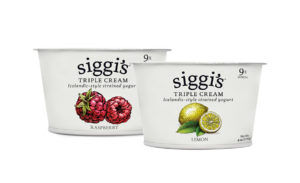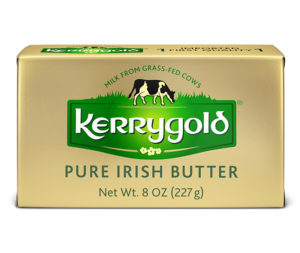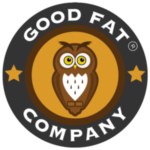Eating full-fat dairy is shown to provide essential nutrients difficult to obtain from low-fat or dairy restrictive diets.
Full-fat dairy foods are nutrient-dense especially without added sugars compared to lower fat versions. Consuming too much sugar and excess carbohydrates make us eat more, gain weight, and sets yourself up for chronic disease.
Consuming full-fat dairy makes you feel full so you’re not snacking, therefore eating fewer calories, and you typically lose weight. The fat also allows for certain nutrient absorption, like vitamins A, D, E, and K. Dairy is also an excellent source of protein, to help your muscles recover, and calcium, phosphorus, and vitamin D to help strengthen your bones.
As with any nutrition plan, consuming the right portion size of any food is essential for optimal health. It’s also recommended to purchase organic dairy foods to avoid added hormones and antibiotics.
The following are excellent full-fat dairy sources:
- WHOLE MILK YOGURT – more flavorful than non-fat versions, whole milk yogurt is a rich source of calcium and protein. Each 8 oz. serving contains about 140 calories, 8 grams of protein, 11 grams of carbohydrates, 8 grams of fat, and 275 mg of calcium.

Siggi’s Tripple Cream – 10g of fat per serving
Siggi’s is not certified organic, however, they work with farms that do not use any kind of growth hormones such as rBST. All of Siggi’s products are all-natural, made with non-GMO ingredients, and without artificial sweeteners or colorings. They keep their ingredient list simple and ensure that their products are made with the best, non-GMO-verified ingredients.
- WHOLE MILK – nutrient-dense along with a creamy taste and texture, whole milk provides a low-calorie drink with numerous health benefits. Each 8 oz. serving contains about 149 calories, 8 grams of protein, 11 grams of carbohydrates, 8 grams of fat, and 275 mg. of calcium.
- FULL-FAT CHEESES (including cottage cheese) – dairy food made from milk and available in an assortment of colors, flavors, and textures. The nutrient breakdown of cheese is highly variable and depends on the type of cheese. Each 1 oz serving of cheddar cheese contains about 114 calories, 7 grams of protein, .4 grams of carbohydrates, 9.4 grams of fat, and 202 mg of calcium. Each 1-cup serving of cottage cheese contains about 220 calories, 25 grams of protein, 7 grams of carbohydrates, 9.7 grams of fat, and 187 mg of calcium.
- BUTTER – a dairy product containing 80 percent butterfat. Each 1 tbsp serving contains about 102 calories, .1 grams of protein, 0 grams of carbohydrates, and 12 grams of fat. Although not a good source of calcium, real butter contains short-chain fatty acids shown to reduce inflammation in the digestive system. Butter also contains essential vitamins and minerals.
 Kerrygold Salted Butter – The winds, rain and warming influence of the Gulf Stream all contribute to the lush grass their cows feed on year-round. They produce the sweetest, richest milk in the world, which makes their grass-fed cow’s milk Irish butter taste silky and creamy and glow a healthy, golden yellow.
Kerrygold Salted Butter – The winds, rain and warming influence of the Gulf Stream all contribute to the lush grass their cows feed on year-round. They produce the sweetest, richest milk in the world, which makes their grass-fed cow’s milk Irish butter taste silky and creamy and glow a healthy, golden yellow.
Your Good Fat Friends at Good Fat Company


